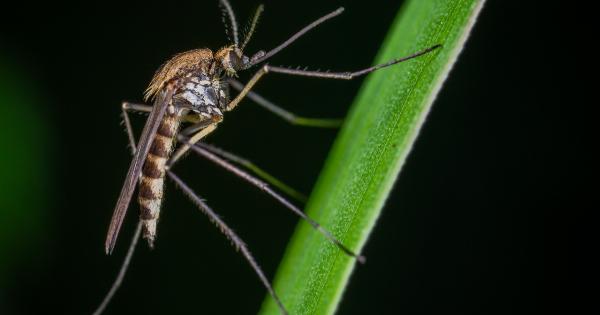Are you tired of using chemical-laden sprays to repel mosquitoes from your home? Instead, why not try incorporating natural and beautiful plants into your space? Here are the top five mosquito-repelling plants that you can grow indoors or outdoors:.
Citronella
One of the most well-known mosquito repellent plants is the Citronella plant. It is found in many commercial insect repellents, but the real thing is much more beautiful, and you get to enjoy its distinct scent.
Citronella plants are quite resilient and can tolerate a wide range of growing conditions. However, for optimal growth, they will need plenty of sunlight and well-draining soil.
Lavender
Lavender is not only a beautiful and fragrant plant, but it also repels mosquitoes, flies and other pesky insects. You can grow lavender in a pot indoors or outside in your backyard.
Lavender is known to have a calming effect, and many people use it as a natural sleep aid. However, mosquitoes do not like the potent scent of Lavender, so the plant can help to protect you from bites when placed nearby.
Mint
Mint is a multipurpose plant that is easy to grow and can be used in a variety of ways, such as in cocktails and teas.
But did you know that mint is also known for driving away mosquitoes? You can plant mint in little pots around your patio or garden to create a fragrant and effective barrier against bugs. Mint plants need plenty of water and well-draining soil, but keep in mind that mint is a fast-growing herb that can quickly become invasive.
Basil
Basil is more than just a delicious herb used in Italian cooking; it’s also a natural mosquito repellent. Studies have found that basil contains chemicals that can ward off mosquitoes, making it a fantastic addition to your herb garden.
Basil plants thrive in warm, sunny environments, and they don’t require much water. If you want to keep mosquitoes away from your garden, try planting basil around the edges.
Lemon Balm
Lemon balm is a perennial herb that is easy to grow and can be used for a variety of purposes, including making tea. It is also known to repel mosquitoes, making it an excellent addition to your garden or pots around your patio.
The plant has a soothing, lemony aroma that humans love, but mosquitoes can’t stand. Lemon balm plants should be grown in partial shade, and they prefer moist soil.
By incorporating these natural mosquito repellent plants into your home decor, you can enjoy the beauty and benefits of nature while keeping pesky mosquitoes at bay.
So, go ahead, get creative, and try adding some of these plants to your garden, patios or inside your home.





























